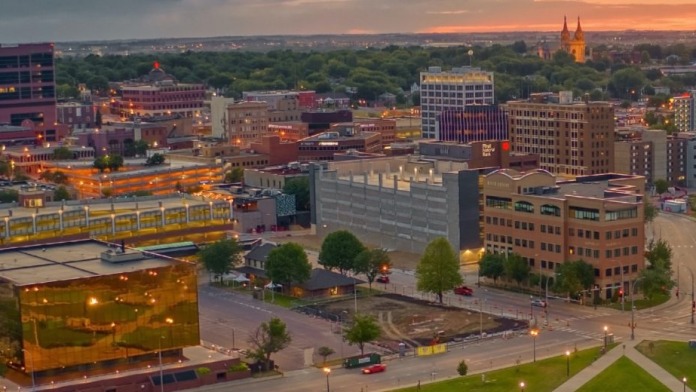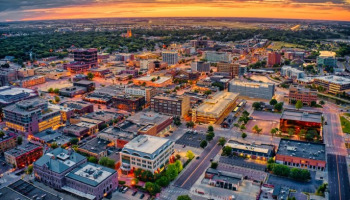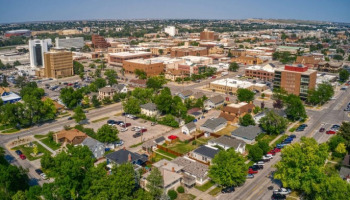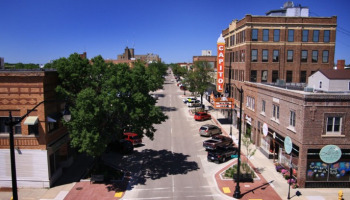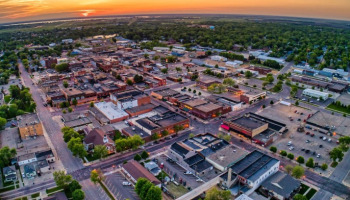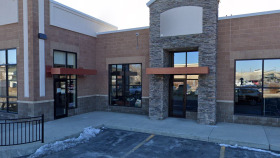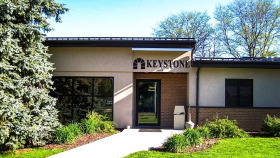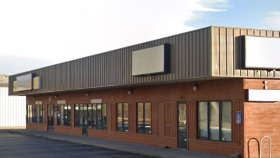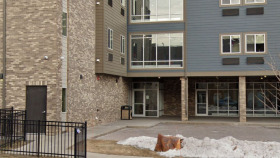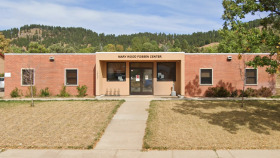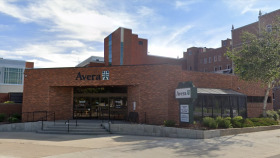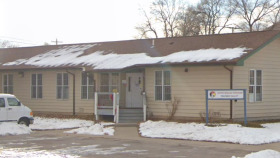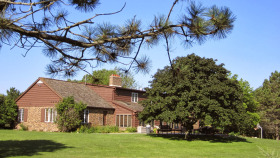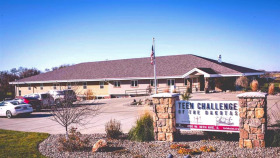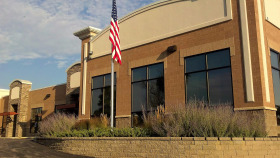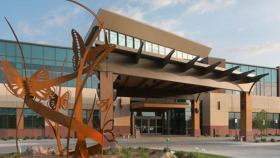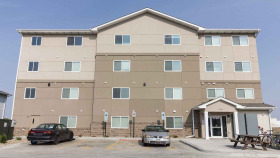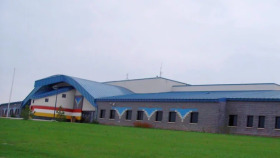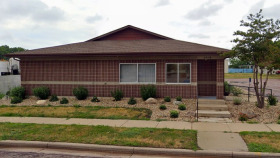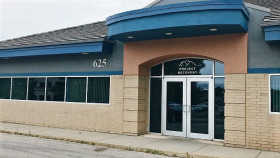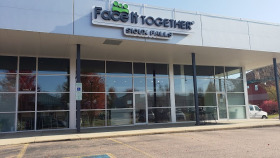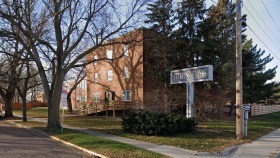Expert Insights
Advocacy groups in South Dakota have been crying out for measures to combat methamphetamine addiction and associated crimes. I was pleased to read a recent news article that state senator Michael Rohl amended a bill (the state felony ingestion charge) which in effect funnels those who would normally go into the overcrowded prison system into addiction treatment instead. I think this is a great idea because I know many people in recovery who would not be there had they not been given a chance to change by the criminal justice system. Given the cost of prison, I can see how encouraging people into treatment will save the state money!
~ Olivia Pennelle
How Much Does Drug Rehab Cost in South Dakota?
South Dakota is ranked 9th nationwide in terms of addiction treatment affordability, with an average cost of drug and alcohol rehab of $56,108 (without insurance).
- Medical detox is the most expensive, with an average cost of $138,327
- Long-term inpatient drug rehab in South Dakota costs an average of $49,512
- Outpatient addiction treatment in South Dakota costs an average of $8,227
- Outpatient methadone treatment is the most affordable, with an average cost of $7,310
The cost of alcohol and drug rehab in South Dakota can vary greatly depending on the type of treatment you receive. From detox to residential inpatient and outpatient to ongoing counseling therapies, many elements factor into the total cost of rehab.4 South Dakota also offers free, low-cost, and luxury rehabs.
How to Pay for Drug Rehab in South Dakota
As of 2024, there were over 60 drug rehab facilities across the state of South Dakota. These facilities accept several payment methods. Of those treatment facilities, the following numbers reflect how many accept their respective payment methods:
There are several options to help pay for your addiction treatment in South Dakota. Some programs offer free care and others give you low cost options to help reduce your expenses and make addiction treatment more accessible.
Private Pay + Insurance
Federal law regulates commercial health insurance providers. Two laws mandate that insurance plans cover mental health and substance abuse treatment, including the 2008 Mental Health Parity and Addiction Equity Act and the 2010 Affordable Care Act. However, there are exceptions to these laws, so you must verify your coverage before you begin treatment.
Some insurance policies require prior authorization before you can begin treatment. This typically includes documentation of medical necessity, which many treatment centers can help you gather. Some people choose to pay privately, which offers more confidentiality and reduces the potential for their employer to know they are getting addiction treatment. The following are the three major commercial insurance providers in South Dakota.
- Avera
- Sanford Health Plan
- Wellmark
Medicaid
Medicaid is a state and federally funded health plan that covers individuals who meet eligibility requirements. These requirements include being a U.S. citizen or a qualified immigrant, current Social Security number, resident of South Dakota, and income criteria. Medicaid meets the essential services outlined by the 2010 Affordable Care Act and covers treatment for mental health and substance use disorders.
The South Dakota Department of Social Services4 administers Medicaid for the state. You can check eligibility on their website or the Health Insurance Marketplace. South Dakota voted to expand eligibility in 2023 so adults making 138% of the poverty level met eligibility requirements.
Medicare
Medicare is federally funded health coverage designed for people aged 65 and older. Medicare also meets the legal requirements for essential healthcare services, including coverage for mental health and substance abuse treatment. Original Medicare has two parts – Parts A and B. These cover inpatient and outpatient care for general medical and surgical care and substance abuse treatment.
Medicare Parts C and D are premium based managed care plans you can purchase from private insurance companies. Part C helps manage Parts A and B and some offer additional coverage, and Part D covers prescription drugs, including those in opioid drug substitution plans, such as methadone. There are 192,000 people enrolled in Medicare in South Dakota and only about one third are enrolled in a Medicare Advantage plan.
Military Insurance
There are several military healthcare facilities in South Dakota, including the VA Sioux Falls Healthcare System and the 28th Medical Group at Ellsworth Air Force Base. TRICARE is a healthcare program for active duty and retired military personnel and their families.
Comprehensive coverage includes treatment for mental health in substance abuse within the military health system at hospitals and clinics around the world. TRICARE is also accepted at a wide network of civilian healthcare facilities. TRICARE manages healthcare in three regions, and South Dakota is managed by the West Region and Health Net Federal services.
South Dakota offers special military benefits including eligibility for education assistance and property tax exemption. VA health care is offered at Fort Meade, Hot Springs, and Sioux Falls, and community-based clinics throughout South Dakota.
Tribal Funding and Programs
There are nine federally recognized tribes living in South Dakota, including the Cheyenne River Sioux Tribe, Lower Brule Tribal Governments, and Flandreau Santee Sioux Tribe. In 2023, South Dakota awarded $16.3 million in 33 grants to benefit various tribal and local governments focused on supporting Public Safety and Community Justice.
The Behavioral Health Funding Opportunity and Grant from the South Dakota Department of Social Services also issued Opioid Settlement Fund Community Grants to support efforts to alleviate the impact the opioid crisis has had on the South Dakota communities. South Dakota Grant Watch lists 39 substance abuse treatment and prevention grants, seven of which address the needs of tribal communities in South Dakota.
Other Low-Cost Options
When you do not have commercial health insurance and cannot self pay, other low-cost options can make drug rehab accessible. The fastest way to receive care is a personal loan from a bank or family and friends. While getting a loan from the bank is typically more confidential, your friends and family likely offer a lower interest rate and have a more flexible repayment plan.
Other financial aid options include payment plans and sliding scale fees from the addiction treatment center you choose. Usually, you must prove your income and ability to pay to receive this help. If you do not have commercial Health insurance, you may qualify for government sponsored Medicaid or Medicare. Both of these healthcare plans offer coverage for mental health and substance abuse treatment.
Community-based groups and organizations may offer grants and scholarships to help pay for alcohol and drug rehab. You should also consider raising funds from family and friends or crowdsourcing. While this might feel uncomfortable, not receiving treatment can be far more expensive when you consider the cost of drugs, loss of employment, damage to relationships, and possible incarceration.
Free Addiction Treatment Resources in South Dakota
After you decide to get help for substance abuse, one obstacle you may face is paying for treatment. There are low cost and free rehabs in South Dakota that can help meet your needs and increase the potential you will get and stay sober. People who struggle with drug abuse may also experience poverty, homelessness, unemployment, and other financial challenges.
Free alcohol and drug rehab centers usually offer inpatient care for people who need 24/7 supervision and care, including medical detoxification. They also offer outpatient therapy using evidence based treatment in individual, group, and family therapy situations. Treatment may also include aftercare to help you maintain your sobriety. Drug rehab is not a luxury. It is necessary to help you achieve and maintain sustainable recovery.
According to the National Center for Drug Abuse Statistics, South Dakota has 64 active substance abuse clinics that provide care for over 2,800 people each year. The state ties for the 10th cheapest state for inpatient rehabilitation and has several clinics that offer low cost or free drug rehab. The cost of drug and alcohol rehab varies between treatment centers and depends on your customized treatment plan and geographical location.
Face It Together
Face It Together provides personalized peer coaching for people who are impacted by addiction, including their loved ones. Coaches offer people knowledge, support, and practical tools. They use a flexible approach that is scheduled to your calendar. More than 90% of all sessions are completed at no cost.
ReNew
ReNew supports mothers with newborns who have a history of substance abuse. Bethany Christian Services runs a program that helps women recover and connects them with community resources. Women have access to needed services, parenting education, and tools to build resilience, self sufficiency, and productivity.
AvoidOpioidSD
Through the AvoidOpioidsSD initiative, South Dakota Department of Health and Human Services runs several harm reduction programs. These include peer recovery support, overdose education, naloxone distribution, and a disposal program where programs can drop off unused drugs at several locations throughout the state.
Oxford House Recovery Homes
Oxford House Recovery Homes are peer-directed sober homes that support people in addiction recovery together in an environment that promotes sustainable recovery. People can relearn values, life skills, and responsible behavior. The Department of Social Services funds the program to help reduce the cost of incarceration and the number of drug related crimes.
Make the Connection
Make the Connection is a nationwide program that provides support and treatment for veterans, with seven locations in South Dakota. They provide help for people with substance use and alcohol use disorders, and mental health conditions such as adjustment disorder, depression, and the effects of traumatic brain injury.
South Dakota Alcohol and Drug Use Statistics
When it comes to alcohol use, residents of South Dakota report a higher average than America as a whole. Consider the following stats:1,2
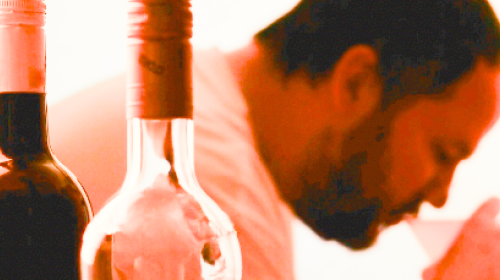
In 2020, 24% of adults engaged in binge or heavy drinking vs. the national average of 17.6%
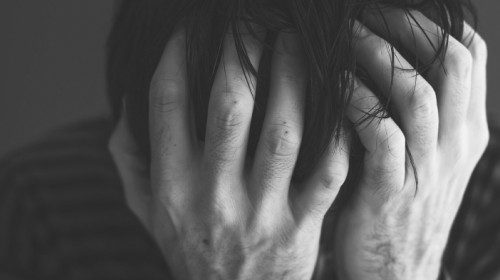
Over 12% of South Dakota residents had an alcohol use disorder.

Over 12% of South Dakota residents had an alcohol use disorder.
17% of South Dakota residents had a substance use disorder.
Drug Laws in South Dakota
Marijuana
South Dakota allows the use of marijuana for medicinal purposes for qualified and debilitating medical conditions. You can possess up to three ounces of cannabis, two flowering plants, and two not flowering marijuana plants for medicinal purposes. Possession of two or fewer ounces for recreational use is a misdemeanor and over two ounces can receive felony based penalties. Even if a state has legalized recreational use, it is still illegal under federal law, which regulates national parks and courthouses.
DUI
A blood alcohol concentration of 0.08% or greater by testing blood, breath, or other bodily substances. A first offense is a misdemeanor that carries penalties of up to one year in jail, a fine of up to $2,000, and suspension of your driving privileges of at least 30 days and up to one year.
Naloxone Standing Order
The South Dakota Department of Health has a standing order to allow pharmacists to dispense naloxone to people at risk of an opioid related overdose or a family or friend who is at risk of an opioid related overdose.
South Dakota Drug Testing Compliance
South Dakota is considered an “Open” state, which means employers have no court decisions, regulations, or statutes that limit their choices to drug or alcohol test employees. There are federal rules that mandate people taking job positions in safety sensitive areas are tested for drug and alcohol use.
Resources
- Substance Abuse and Mental Health Services Administration. (2020). South Dakota State-Specific Tables.
- Substance Abuse and Mental Health Services Administration. (2017). 2016-2017 National Survey on Drug Use and Health National Maps of Prevalence Estimates, by State.
- National Institute on Alcohol Abuse and Alcoholism. (n.d.). Drinking Levels Defined | National Institute on Alcohol Abuse and Alcoholism (NIAAA) (nih.gov). National Institutes of Health.
- National Institute on Drug Abuse. (2018). Types of Treatment Programs.
- Substance Abuse and Mental Health Services Administration. (n.d.). Single State Agency Directory.
- Healthcare.gov. (n.d.). Mental health and substance abuse health coverage options.
- Medicaid.gov. (n.d.). Eligibility Medicaid.
- Mentalhealth.gov. (n.d.). Health Insurance and Mental Health Services.
- National Institute on Alcohol Abuse and Alcoholism. (2021). Treatment for Alcohol Problems: Finding and Getting Help. National Institutes of Health.
- National Institute on Drug Abuse. (2022, March 22). Treatment and Recovery. National Institutes of Health.
- National Institute on Drug Abuse. (2018). How long does drug addiction treatment usually last?. National Institutes of Health.
- National Institute on Drug Abuse. (2022, March 22). Treatment and Recovery. National Institutes of Health.
- Melemis, S. M. (2015, September 3). Relapse Prevention and the Five Rules of Recovery. The Yale Journal of Biology and Medicine, 88(3), 325-332.
- FindTreatment.gov. (n.d.). FindTreatment.gov. Retrieved January 19, 2023, from https://findtreatment.gov/locator

